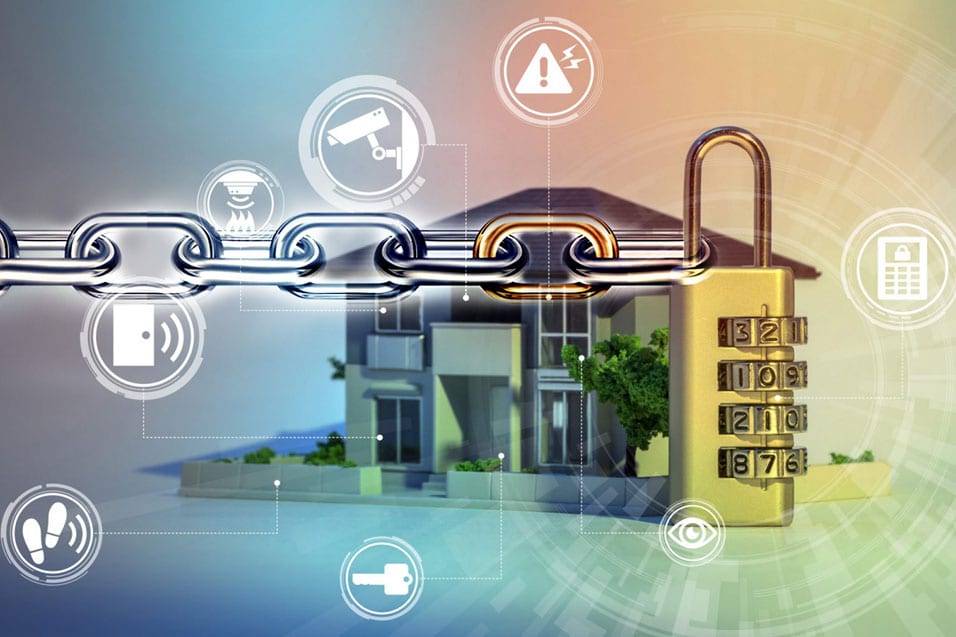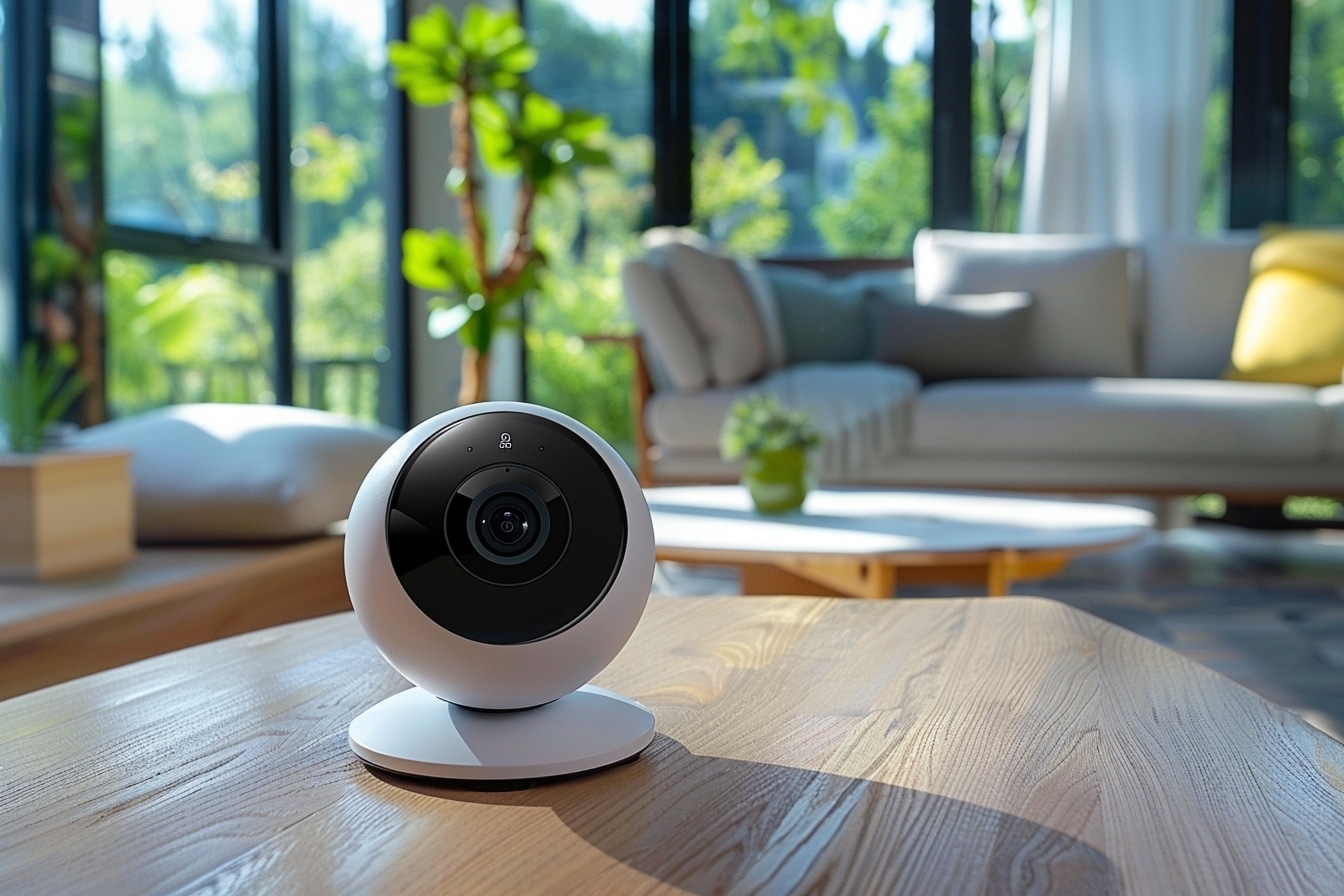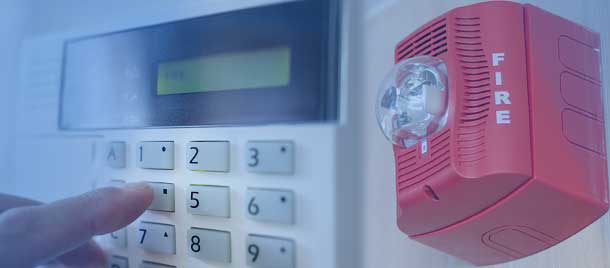'Internet of Things IoT' and the Future of Home Security Systems
The Internet of Things (IoT) has revolutionized numerous aspects of daily life, with home security systems being one of the most impacted areas.
IoT technology has brought significant advancements in how we secure our homes, offering smarter, more efficient, and highly customizable solutions.
This article explores the current state of IoT in home security, its benefits, potential challenges, and what the future holds for this rapidly evolving field.
The Current Landscape of IoT in Home Security
 IoT has transformed traditional home security systems into interconnected networks of smart devices that communicate with each other and can be controlled remotely.
IoT has transformed traditional home security systems into interconnected networks of smart devices that communicate with each other and can be controlled remotely.
Smart Cameras and Surveillance Systems
- Real-Time Monitoring: Modern security cameras offer high-definition video feeds that can be accessed in real-time via smartphones and computers. Features like motion detection, facial recognition, and night vision enhance their effectiveness.
- Cloud Storage: Recorded footage can be stored in the cloud, allowing for easy access and sharing. This eliminates the need for physical storage devices and ensures data is not lost due to hardware failures.
Smart Locks and Access Control
- Keyless Entry: Smart locks allow homeowners to lock and unlock their doors using smartphones, keypads, or biometric scans. This provides convenience and eliminates the risk of losing physical keys.
- Access Management: Homeowners can grant temporary or permanent access to others, such as family members, friends, or service providers. Access logs help monitor who enters and leaves the home.
Integrated Alarm Systems
- Multi-Sensor Integration: Modern alarm systems integrate various sensors, including motion detectors, glass break sensors, and door/window sensors. These systems can differentiate between false alarms and genuine threats.
- Automated Alerts: Alarms can be programmed to send notifications to homeowners and emergency services when triggered, ensuring a swift response to potential threats.
Environmental Monitoring
- Smoke and Carbon Monoxide Detectors: Smart detectors can monitor for smoke and carbon monoxide, sending alerts to homeowners and emergency services. These devices can be integrated into a broader home security system.
- Water Leak Sensors: Sensors can detect water leaks and send alerts before significant damage occurs, allowing for quick intervention.
Benefits of IoT-Enabled Home Security Systems
The integration of IoT in home security systems offers numerous benefits, enhancing the safety, convenience, and efficiency of home protection.
Enhanced Security and Safety
- Comprehensive Monitoring: IoT-enabled systems provide comprehensive monitoring of various aspects of home security, including intrusions, environmental hazards, and unauthorized access.
- Proactive Protection: Advanced features like facial recognition and predictive analytics can identify potential threats before they escalate, allowing for proactive protection measures.
Convenience and Control
- Remote Access: Homeowners can monitor and control their security systems remotely using smartphones or other internet-connected devices. This provides peace of mind and flexibility.
- Automation: Integration with smart home ecosystems allows for automation of security tasks, such as locking doors, turning on lights, and setting alarms based on specific triggers.
Cost Efficiency
- Reduced False Alarms: Advanced sensors and AI algorithms help reduce the number of false alarms, saving costs associated with emergency responses and potential fines.
- Energy Savings: Smart devices can optimize energy use, such as adjusting lighting and HVAC systems based on occupancy, leading to cost savings on utility bills.
Scalability and Customization
- Modular Systems: IoT-enabled security systems are highly scalable, allowing homeowners to start with basic components and expand their systems as needed.
- Customization: Systems can be customized to meet the specific needs and preferences of homeowners, providing tailored security solutions.
Challenges and Considerations
Despite the benefits, IoT-enabled home security systems also present several challenges that need to be addressed to ensure their effectiveness and security.
Cybersecurity Risks
- Vulnerability to Hacking: IoT devices can be vulnerable to hacking and cyberattacks. Ensuring robust encryption, regular firmware updates, and strong password policies are critical to mitigating these risks.
- Data Privacy: The collection and storage of personal data by IoT devices raise concerns about privacy. Clear policies on data use, anonymization, and user consent are essential.
Interoperability Issues
- Compatibility: Not all IoT devices are compatible with each other. Ensuring that devices from different manufacturers can communicate and work together seamlessly is a significant challenge.
- Standards and Protocols: The lack of universal standards and protocols for IoT devices can lead to fragmentation and interoperability issues. Industry collaboration is needed to develop common standards.
Reliability and Maintenance
- Device Reliability: IoT devices must be reliable and able to operate continuously without frequent malfunctions. Regular maintenance and updates are necessary to ensure optimal performance.
- Battery Life: Many IoT devices are battery-powered, requiring efficient power management and regular battery replacements to maintain functionality.
Cost and Accessibility
- Initial Investment: The cost of installing a comprehensive IoT-enabled home security system can be high, which may be a barrier for some homeowners.
- Access to Technology: Ensuring that advanced security technology is accessible to all homeowners, regardless of income level, is crucial for widespread adoption.
The Future of IoT in Home Security
The future of IoT in home security looks promising, with ongoing advancements in technology set to bring even greater capabilities and improvements.
Artificial Intelligence and Machine Learning
- Predictive Analytics: AI and machine learning can analyze data from various sensors to predict and prevent potential security threats. This proactive approach enhances overall home security.
- Enhanced Recognition: Improvements in facial and voice recognition technologies will lead to more accurate identification of individuals, reducing false alarms and increasing security.
5G Connectivity
- Faster Response Times: The rollout of 5G networks will enable faster data transmission, allowing for real-time monitoring and quicker response times to security incidents.
- Increased Device Integration: 5G will support the integration of a larger number of IoT devices, enhancing the capabilities and scalability of home security systems.
Blockchain Technology
- Secure Data Transactions: Blockchain can provide a secure and transparent way to manage data transactions between IoT devices, reducing the risk of data tampering and enhancing trust.
- Decentralized Security: Decentralized security solutions using blockchain can reduce the reliance on central authorities and increase the resilience of home security systems.
Integration with Smart Cities
- Community Surveillance: Integration with smart city infrastructure can enhance community surveillance, providing a broader security network that benefits individual homes.
- Emergency Response Coordination: Smart city systems can improve coordination with emergency services, ensuring faster and more effective responses to security incidents.
Conclusion
IoT has significantly transformed home security systems, offering enhanced protection, convenience, and efficiency. While there are challenges to address, the future of IoT in home security is bright, with advancements in AI, 5G, blockchain, and smart city integration set to bring even greater capabilities. Homeowners who embrace these technologies can look forward to a safer, smarter, and more secure living environment.
Sources
- IoT For All: How IoT is Transforming Home Security
- Forbes: The Future Of Home Security In An Increasingly Connected World
- IEEE Xplore: IoT Security: Review, Blockchain Solutions, and Open Challenges
































